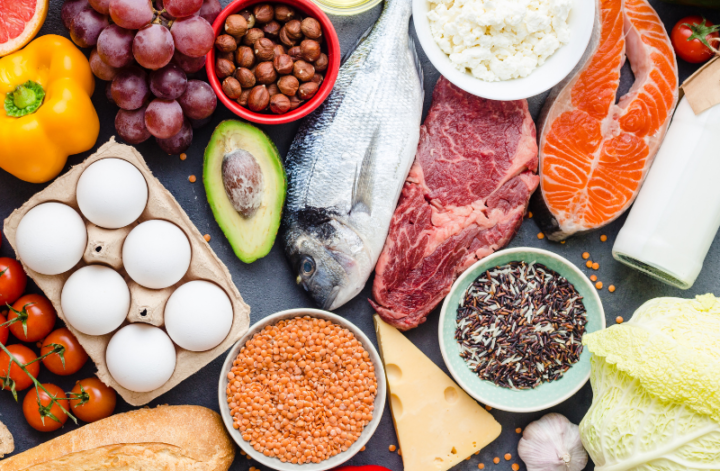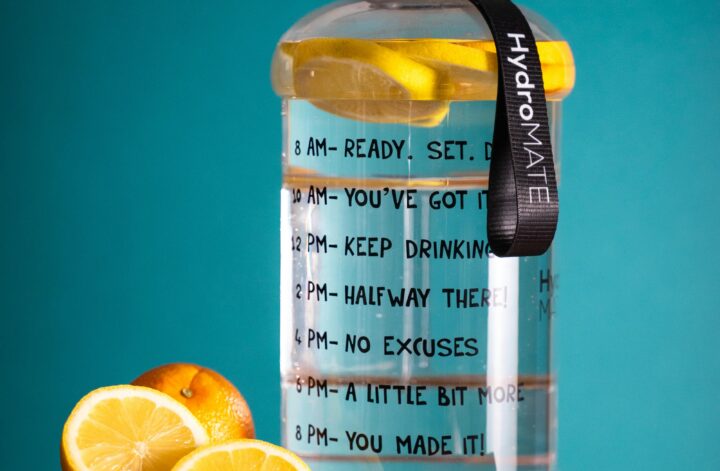Post-Surgery Nutrition: Foods that Promote Faster Healing and Recovery
- Protein: Protein is the building block of the body’s tissues and is essential for the repair and regeneration of cells. After surgery, your body needs extra protein to heal wounds, build new tissue, and maintain muscle mass. Aim to include lean protein sources like chicken, turkey, fish, eggs, tofu, and legumes in your post-surgery diet. Protein-rich dairy products like yogurt and cottage cheese can also be beneficial, providing the added benefit of probiotics that support gut health.
- Vitamin C: Vitamin C is vital for the production of collagen, a protein that helps rebuild tissues and heal wounds. It also plays a key role in boosting the immune system and protecting the body from infections. Citrus fruits like oranges, grapefruits, and lemons are excellent sources of vitamin C, as are strawberries, bell peppers, and leafy green vegetables like spinach and kale.
- Zinc: Zinc is a mineral that helps with tissue repair and supports the immune system, making it critical for wound healing after surgery. Foods rich in zinc include meat, shellfish, seeds (pumpkin and sunflower), nuts, whole grains, and legumes like chickpeas and lentils.
- Vitamin A: Vitamin A aids in the healing of skin and tissues and also helps strengthen the immune system. This nutrient can be found in colorful fruits and vegetables like carrots, sweet potatoes, butternut squash, and dark leafy greens. Liver and dairy products also contain high amounts of vitamin A.
- Omega-3 Fatty Acids: Omega-3 fatty acids have anti-inflammatory properties that help reduce swelling and inflammation after surgery, promoting faster healing. They’re also found in foods that are quite easy to prepare and eat, which makes them great for bringing down any post-op swelling and discomfort after a procedure like a wisdom tooth extraction. Fatty fish like salmon, mackerel, and sardines are rich in omega-3s, as are flaxseeds, chia seeds, walnuts, and fish oil supplements.
- Iron: After surgery, your body may lose some blood, and iron is needed to help your body produce new red blood cells and maintain energy levels. Foods high in iron include red meat, poultry, fortified cereals, beans, lentils, and spinach. Pair iron-rich foods with vitamin C-rich foods to improve iron absorption.
- Fiber: Post-surgery pain medications and reduced physical activity can lead to constipation, which can make recovery uncomfortable. Fiber helps regulate digestion and prevent constipation. Incorporate fiber-rich foods like whole grains, fruits, vegetables, beans, and legumes into your diet to maintain healthy digestion during recovery.
- Water: Hydration is just as important as food for post-surgery recovery. Drinking plenty of water helps flush toxins from the body, maintain healthy digestion, and keep your body’s cells hydrated for optimal healing. Aim for at least 8-10 glasses of water per day, or more if your healthcare provider recommends it. And if you want to make the most of the water you’re drinking, make sure it comes from a provider like American Water that offers the very best in terms of water coming into your home.
Best Foods to Include in Your Post-Surgery Diet
To make sure you’re getting the nutrients needed for healing, try incorporating the following foods into your post-surgery meals:
- Lean Proteins: Chicken breast, turkey, fish, eggs, tofu, beans, and Greek yogurt are excellent sources of protein to support tissue repair.
- Fruits and Vegetables: Citrus fruits (oranges, grapefruits), berries (strawberries, blueberries), leafy greens (spinach, kale), bell peppers, and cruciferous vegetables (broccoli, cauliflower) are all packed with vitamins and antioxidants that aid healing and boost the immune system.
- Whole Grains: Brown rice, quinoa, oatmeal, and whole-wheat bread provide fiber and complex carbohydrates that give your body energy while keeping digestion regular.
- Healthy Fats: Avocados, olive oil, nuts (almonds, walnuts), seeds (chia, flax), and fatty fish (salmon, mackerel) provide essential fats that help reduce inflammation and promote healing.
- Probiotic Foods: Fermented foods like yogurt, kefir, sauerkraut, and kimchi can help maintain gut health, which is important for absorbing nutrients and keeping your immune system strong.
- Herbs and Spices: Turmeric and ginger have natural anti-inflammatory properties that can support healing after surgery. Try incorporating these spices into your meals to enhance both flavor and recovery benefits.
Foods to Avoid After Surgery
While certain foods can help your body heal, others can slow down recovery or cause complications.
Post-surgery recovery isn’t just about what you eat—it’s also important to take care of any assistive devices you rely on daily. For individuals who use hearing aids, ensuring they are in top condition is essential during recovery. Surgery, medications, and general health changes can sometimes affect hearing, making it crucial to check for any necessary hearing aid repair to avoid additional discomfort or communication challenges during the healing process.
Here are some foods to avoid:
- Processed and Sugary Foods: Foods high in sugar and unhealthy fats, like sweets, chips, and fried foods, can promote inflammation, weaken the immune system, and slow down the healing process.
- Alcohol: Alcohol can interfere with the healing process by dehydrating the body, weakening the immune system, and increasing the risk of complications like infections or delayed wound healing.
- Caffeine: Excessive caffeine consumption can interfere with hydration and may cause digestive discomfort during recovery. Stick to moderate amounts, and focus on water and herbal teas.
- Low-Fiber Foods: Foods low in fiber, like white bread, white rice, and sugary cereals, can contribute to constipation, which is common after surgery due to medications and reduced activity levels.
Conclusion
Eating a well-balanced, nutrient-rich diet after surgery is a powerful way to support your body’s natural healing processes. Focusing on lean proteins, fruits and vegetables, healthy fats, and whole grains will provide the essential nutrients needed for tissue repair, reduce inflammation, and strengthen your immune system. By making mindful food choices and staying hydrated, you can promote faster healing, minimize complications, and enhance your overall recovery experience. Remember, healing is not just about rest—what you eat is a key part of the journey to a full recovery.




